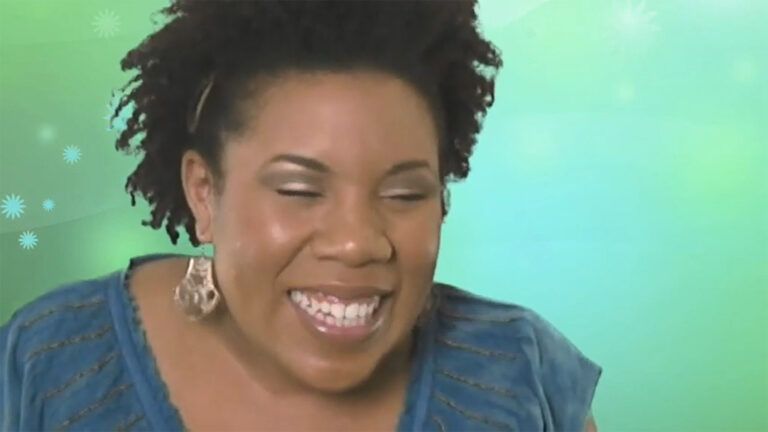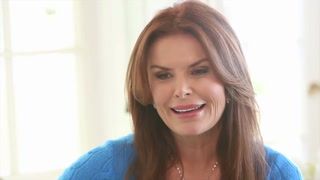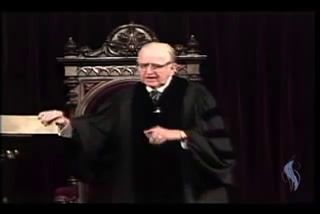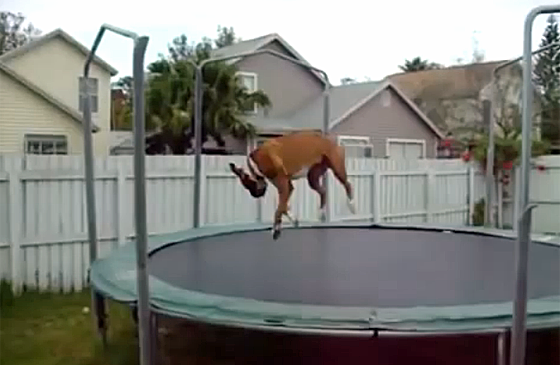
TV’s Mike Rowe and His Mother, Peggy, on Her New Memoir
Mike Rowe, host of The Discovery Channel’s Somebody’s Gotta Do It, and his mother, Peggy, discuss her new memoir, About My Mother: True Stories of a Horse-Crazy Daughter and Her Baseball-Obsessed Mother.
View Transcript
Guideposts Video: Inspiring True Stories
Mike Rowe: Do I look familiar, Guideposts? If I do, it’s because I was here back in 2013. I made the cover, Mom.
Peggy Rowe: Oh, it’s lovely.
MR: I’m Mike Rowe. This is my mother, Peggy Rowe. We’re here today to discuss what I believe—and I don’t want to overstate it—but to discuss what I believe to be the finest book ever written.
PR: Maybe the second finest book.
MR: Oh, well, of course, we have the Bible and your book.
PR: Well, I’m in good company.
MR: What’s the book called?
PR: It’s called About My Mother. And the subtitle is True Stories of a Horse-Crazy Daughter and Her Baseball-Obsessed Mother.
MR: And it’s true. My grandmother was obsessed with baseball. My mother was obsessed with horses. These two women lived next door to one another for 70 years. They had almost virtually nothing in common, and yet they loved each other with the white hot intensity of 1,000 suns.
PR: Wow. That’s impressive.
MR: Sometimes I just say things, because I feel like it’s my turn.
PR: I know, I know.
MR: Why’d you write the book?
PR: Well, I wrote the book, because your grandmother is great material. But through the years, I’ve been a writer and I’ve written stories for newspapers and magazines and the response was just amazing. It is a feel-good story. So I decided to put a lot of them together and do a book.
MR: I’m gonna tell them the truth now. OK?
PR: OK.
MR: So here’s what happened. My mother’s been writing these stories for years. All right? And a couple of years ago, I started to share them on Facebook. And you wrote the story about the time you lost your big blue purse at the Wal-Mart.
PR: Yes, I did.
MR: And she basically wrote this story—she was trying to get my attention, because I hadn’t returned her calls. Being very terribly busy, I had committed the sin of not returning my mother’s calls for a 48-hour period. So she sends me this story, along with a note that says, “Obviously, you would prefer to communicate publicly on your Facebook page. So that’s fine. We’ll just do it like this if you’d like.”
So I read her story on my Facebook page, sitting at my kitchen table. And then I went back out to work. And when I came home, 70 million people saw that story. And that’s when the publishers started calling saying, “Hey, maybe she could write a book on these stories. And what came out the other end—that’s it, Mom.
PR: About My Mother.
MR: Yes. As a reader, there’s a lot to take away from the book, but if you want inspiration, I think you just have to think in terms of she’s gonna be 81 years old in two weeks and she’s written a book. She’s a first-time author and she’s on the bestseller list.
You did it at the perfect time. You know, I mean—this is a book you’ve been writing your whole life. And it’s not like all of a sudden you did anything different.
Everybody’s had a mom, you know, and a grandmother. And the connections that come out of this story, you know, they’re inspirational to me, because I never had a sister, you know? And you raised three boys.
PR: That’s right.
MR: So you know, you’re a very strong woman in your own way. And you probably never think yourself that way, but Nana was the strongest of strong women, you know.
PR: This is true, a little on the bossy side. She knew a lot of stuff.
MR: And she wasn’t afraid to share all of it.
PR: No. She wasn’t. No. She wasn’t.
MR: But for me—and I said this in the Guideposts article—you know, because my grandparents lived right next door to us, I had two dads and, of course, I also had two moms. And the fact that you guys were so different growing up and, from my perspective, almost polar opposites and yet so close in some weird way, I think is an important lesson for the country.
PR: There was mutual respect between my mother and me. We were different, but my mother had a passion for baseball, for the Baltimore Orioles. And sometimes it was embarrassing because she was quite the extrovert. She danced around and threw things at the television and yelled at the umpires.
And so I had to make sure I didn’t invite any friends over when there was a ball game on. Our lives were governed by the orange and black schedule that hung on the refrigerator door. And nothing was scheduled during a ball game, because ball games were sacred.
But she was equally embarrassed by my passion for horses. You know, I would gallop around the countryside and—and wear dungarees that smelled like horse manure.
MR: You stunk, Mom. You stunk.
PR: I stunk.
MR: You were a smelly daughter.
PR: But she embraced my…our differences. Yeah.
MR: Well, if you think about, again, huge differences, but the same passion…
PR: Yes.
MR: You know, like the same level of intensity for things that you actually cared about.
PR: Yeah. This is true.
MR: So when people read the book, all right, your readers, what do you want them to feel?
PR: I want them to feel good. I want them to feel peaceful. I want them to think back to their own families and the relationship they had with their mother or with their daughters.
I want them to be able to relate to my book and say, “Oh, yeah. I felt that. I felt like my mother didn’t completely accept me sometimes, but it turned out OK.” Yeah, I want them to feel good about it. This is a book that will make you feel good.
MR: It’s the feel-good hit of the season.
PR: Absolutely.
MR: Honestly, I’m biased, but I think people will be enjoying this book decades from now, as long as mothers are having daughters and as long as daughters are feeling like their mothers don’t understand them and as long as mothers are feeling like their daughters must have been left on the doorstep for something, right? You know, it’s that—it’s the love that you can find in the differences that’s gonna make that thing special.
PR: That was well put.
MR: It wasn’t bad.
PR: I like the way you said that. That should be on the cover.
MR: Maybe it will. And I wrote the foreword. In fact, I wrote two forewords, one for each printing.
PR: And they’re good, really. The forewords are excellent. But I might be a little biased.
MR: You want to hear a couple of lines from the foreword?
PR: Yes, it’s been a day since I’ve read that.
MR: [reads from book] When my mother finally finished the manuscript for her new book, she asked me if I wanted to write the foreword. “That depends,” I said. “Is it any good?” “Well,” she said, “I’ve sent it off to several publishers. They all say it’s terrific.” “Hey. That’s great,” I said. “Which publisher did you decide to go with?” “Oh, they all passed,” she said. “What? Why?”
“They told me a collection of loosely connected stories about a woman no one has ever heard of might be a tough sell in today’s highly competitive marketplace.” “I see,” I said. “So then, who exactly is publishing this book of yours?” “Well,” said Mom, “after you write the foreword, I thought maybe you could do it.”
PR: That was a little bit presumptuous, wasn’t it?
MR: It was a little bit. Yeah. I got some time on Thursday, I’ll publish your book…
PR: But it worked.
MR: Hey, it was the best thing I ever did.
PR: Oh, that’s nice to hear.
MR: I’ve never had a better time bragging about a product that actually matters than your book.
PR: Oh, that’s—that’s really nice to hear.
Reminds me of that old song” “You are a wonderful mother, what a friend, what a pal. Only now I can see how you dreamed and you planned all for me.”
PR: Oh, you’re good. You know what?
MR: I’m not done.
PR: Oh, I’m sorry.
MR: “I stole the gold from your hair. I put the silver threads there. I don’t know anyway I could ever repay you, wonderful mother mine, the pal of my cradle days.”
PR: You want me to cry right here?
PR: I was trying. I was trying. Studies show the more you cry, the more books they’ll buy. So give us a tear, Mom.
MR: Get out of here.










